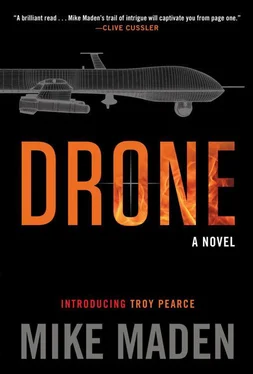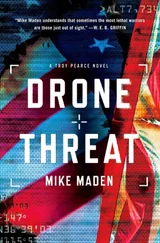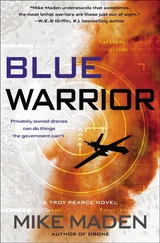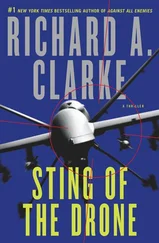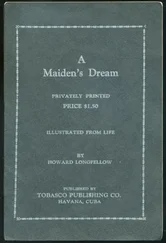“It’s not that simple,” Pearce said.
“Sure it is. You’re hiding behind a bad memory. You loved her. She died. I get it. But ask yourself this. What would Annie do if she were you?”
Early tossed the ax aside, grabbed up his shirt, and yanked it on.
“Where are you going, muffin top?” Pearce asked.
“Plane to catch.” Early stormed toward his government car.
“Hold on,” Pearce called out.
Early whipped around. “What?”
Pearce opened his mouth to speak, but nothing came out. He still had Annie’s voice in his head. Knew exactly what she’d say to him.
Still had her ring, too.
“Say again?” Early asked.
Pearce snapped out of his fog.
“Wait up. I’ll grab my stuff.”
CIA Headquarters, Langley, Virginia
November 28, 2005
Pearce stood as cold and lifeless as the Vermont marble wall in the lobby. The ceremony was over. Everyone else had left. Even Early. The newest star had been carved into the Memorial Wall.
Annie’s.
No name, of course. None of them had names. But even in the black leather book sealed under glass attached to the wall there was only a gold star by her number. Her name would be kept secret forever. Killed on a mission she shouldn’t have been on. Killed in a country she wasn’t supposed to be in. Killed because some political fucks were playing their political fuck games instead of fighting the real goddamn war.
So Annie stepped up. Hell, they all did. But Annie was the one who laid it all down. Now she was a nameless star. One among many. There’d be more.
Pearce’s vacant eyes scanned the inscription in gold block letters again.
IN HONOR OF THOSE MEMBERS OF THE CENTRAL INTELLIGENCE AGENCY WHO GAVE THEIR LIVES IN THE SERVICE OF THEIR COUNTRY.
That was Annie all right.
Pearce had resigned a month ago. The deputy DCI had personally asked him to take a sabbatical, think it over. He was too important to the war effort to quit. Needed him to lead a team into Syria right away. The best we have.
The country needs you.
Pearce turned him down. Mumbled something about how he loved his country, hated politics. Should’ve said “politicians,” too. Maybe he did.
The deputy said he understood. Had the decency to include Pearce in Annie’s memorial. Early was there. So were her parents.
Annie was a spook to the end. Kept her secrets. Hadn’t told her folks about Pearce so he hadn’t been invited to her funeral. It was just as well. He’d stood beside too many graves already.
Pearce left. Stepped out into the cold Virginia sunshine and didn’t look back.
Coronado, California
Pearce lived in a high-rise condo on the beach, not a hand grenade’s throw from the famed Naval Amphibious Base, home to the West Coast Navy SEALs, among other commands. There was nothing like watching a Pacific sunset from his penthouse balcony, but he also enjoyed rooting for the soaking wet BUD/S trainees pounding the sand in front of his building, hauling a three-hundred-pound Zodiac over their shaved heads into the freezing surf.
The CIA’s Secret Activities Division (SAD) recruited heavily from among the SEAL teams for its paramilitary Special Operations Group (SOG), to which Pearce had belonged. And not the other way around, he’d remind his squid friends with a nudge. In the special forces community, SOG was considered the elite of the elite. Pearce had been one of the few SOG members recruited directly from civilian life straight out of grad school. Still, some of his best friends from his SOG days had been former frogmen and he felt a deep kinship with anybody wearing the fearsome SEAL trident.
Pearce wasn’t on his balcony tonight. Instead, he was in his media room on a video conference call with his team. Early was still in Washington with Jackson, while the rest of Pearce’s team was already in position around their various targets in Mexico.
Early had developed the target list with Jackson’s help. The DEA had kept close tabs on the Castillo organization’s leadership for years.
“When you said decapitation, you weren’t fooling around. This is almost genetic cleansing,” Early told Jackson as he reviewed the list. Nearly every name on the list was related to César Castillo.
“Castillo’s a bad seed. We’re just weeding out the garden,” Jackson said. “Castillo puts a lot of faith in blood relations. He doesn’t trust outsiders much. He’s the one who’s condemned his family to be blotted out, not us.”
With the list of targets in hand, DAS had gone to work two weeks earlier, sifting through terabytes of information sucked out of public and restricted databases. People are creatures of habit, and DAS exploited that human frailty to the maximum. DAS established travel patterns, identified the most frequented locations, and tagged the regularly used vehicles of the fourteen targets through data provided by Mexican city, traffic, and surveillance cameras; local and national air-traffic-control flight data; and even cell tower usage.
Pearce decided to divide his team into five operational groups. Three groups were responsible for four targets each, and those targets were sorted by geographic proximity. The three lieutenants directly under César Castillo were his three brothers—Napoleon, Alejandro, and Julio—and each of them had three lieutenants within their suborganizations. Napoleon’s organization was based in Chihuahua, Alejandro’s in Nogales, and Julio’s in Tijuana.
The fourth operational group was tasked with monitoring Ulises Castillo while he sojourned in Venezuela. He was the thirteenth target. They did not have permission to engage that target unless he crossed into international waters or returned to Mexican territory. In Pearce’s opinion, Myers was being too cautious, but she didn’t want to provoke the new Venezuelan president unnecessarily. He was already a staunch opponent of American interests in the region and was looking for any excuse to escalate tensions.
The last operational group would be headed up by Pearce. His target was the big dog himself: César Castillo. He had special plans for the crime lord.
All five teams had already done their preliminary scouting and intel work, and had designed their assault plans. Now they were just waiting for the signal to jump.
Pearce also decided to deploy several high-altitude UAVs equipped with data-link payloads for his drone command-and-control operations rather than rent or hijack satellite bandwidth. The data-link drones not only gave him over-the-horizon capabilities, they also provided a greater measure of operational safety. One of the reasons why so many air force drones had crashed over the years was because of the signal delay between control station, satellite orbit, and drone location that sometimes lasted as long as four seconds. A fatal flaw when trying to fly and fire a precision instrument. He also wanted to create as small a digital footprint as possible in order to keep the entire mission off the record.
The most difficult task that Pearce’s operation faced had been to find a relatively narrow window in which to carry out the entire operation. Once the first bodies dropped, the others would likely hear about it quickly and quail. With every target located and identified, it was vital that they all be taken down within twenty-four hours of one another, if not sooner. That window of opportunity had just been identified twenty minutes ago.
“Everybody has been briefed on their mission parameters, Mike, and they’re in position. We’re good to go,” Pearce said.
“Then light it up,” Early said. “And good hunting.”
Barranca del Cobre, Mexico
Читать дальше
